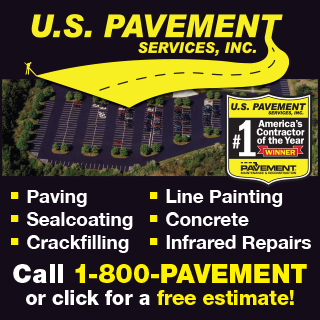News: Front Section
Posted: March 8, 2012
Double trouble when it comes to liability claims
Take a look at the following two liability claim scenarios and see if you can tell why the value of claimant B is greater than the value of claimant A.
Claimant A: On Monday morning, a 25-year-old male, visiting a friend at an apartment complex trips and falls due to a crack on the pavement that was not properly fixed. The fall breaks his ankle. He is taken by ambulance to the hospital for examination. The doctors x-ray the ankle and decide that surgery is required. He is released from surgery and prescribed a course of physical therapy. The claim is immediately investigated, liability evaluated and the claim is eventually settled for $40,000.
Claimant B: On the following Monday morning, another 25-year-old male, visiting a friend at the same apartment complex, trips and falls on that same crack, which has not yet been fixed. The fall breaks his ankle. He is taken by ambulance to the hospital for examination. The doctors x-ray the ankle and decide that surgery is required. He is released from surgery and prescribed a course of physical therapy. The claim is investigated, liability evaluated and the claim is eventually settled for $100,000.
Everything appears to be the same, right? Wrong. The date of the accident for claimant B is exactly one week later than claimant A, and therefore, the liability picture has changed drastically. By the time claimant B fell on the crack, the property manager/owner not only had sufficient notice of a problem, but they had prior knowledge of an actual accident, and what's more, did nothing to correct the hazard!
Establishing the value of a personal injury claim is not an exact science, but when an accident with the same scenario occurs twice, only a few short days after one another, you can be sure that the claim value will substantially increase if the defect that caused the problem isn't mitigated. Don't let this happen to you.
When an accident occurs, be certain to follow up and take corrective action. If the hazard cannot be corrected right away, place signs warning of the potential risk. Proper follow up and documentation is an essential part of controlling the cost of future claims. Evidence of your actions will help to aide in the defense of potential liability claims.
Lisa Hartman, ARM is the director of claims and loss management at Albert Risk Management Consultants, Needham, Mass.
Tags:
Front Section
MORE FROM Front Section
Newmark negotiates sale of 10 Liberty Sq. and 12 Post Office Sq.
Boston, MA Newmark has completed the sale of 10 Liberty Sq. and 12 Post Office Sq. Newmark co-head of U.S. Capital Markets Robert Griffin and Boston Capital Markets executive vice chairman Edward Maher, vice chairman Matthew Pullen, executive managing director James Tribble,

Quick Hits
Columns and Thought Leadership

Four tips for a smooth 1031 Exchange - by Bill Lopriore
Many real estate investors do not understand the specific requirements that must be met to secure the benefits of a tax-deferred 1031 exchange. For example, the replacement property must be identified within 45 days of the closing date of the relinquished property.

How COVID-19 has impacted office leasing - by Noble Allen and John Sokul
To say that the effects of COVID-19 has transformed office leasing is an understatement. When COVID-19 was at its peak, office spaces were practically abandoned either through governmental mandates or through actions taken by businesses themselves.

Five ways to ruin a Section 1031 Like-Kind Exchange - by Bill Lopriore
While there is some flexibility when structuring a like-kind exchange, some important requirements must be met. A mistake can ruin your exchange. Here are five mistakes to avoid:

Make PR pop by highlighting unique angles - by Stanley Hurwitz
Coming out of the pandemic, a client with three hotels in Provincetown, Mass., needed ways to let the world know his properties were open for business for the 2021 tourist season.








